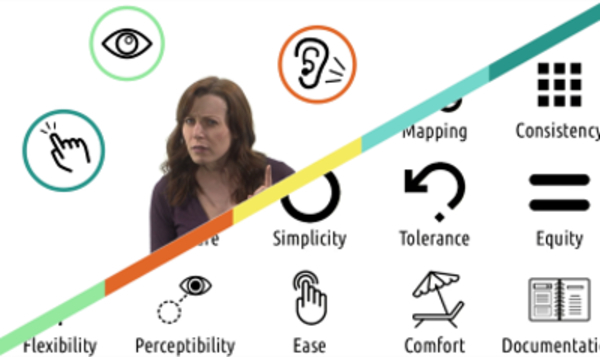Price:
7336 EUR
Contact
Georgia Institute of Technology
Description
Learn the fundamentals of Human Computer Interaction in this four-course certificate.
This course begins with an introduction to the field of Human-Computer Interaction as a whole and where it sits in the context of related and similar fields like Human Factors Engineering and User Experience Design. Here, you’ll learn just enough of the history of HCI to get started having real conversations about the field.
Then, you’ll learn the fundamental design principles of human-computer interaction. You’ll start with the fundamental feedback cycle that underlies all interactions between users and interfaces. With that in mind, you’ll then learn the design principles developed by visionaries in the field like Don Norman, Jakob Nielsen, Larry Constantine, and Lucy Lockwood. From there, you’ll move into more advanced theories of HCI, including situated action and distributed cognition, then conclude by looking at how interface design can impact social change.
After you’ve learned the fundamental principles and theories of HCI, you’ll move onto the design life cycle. The design life cycle covers how you iteratively gather requirements, brainstorm alternatives, prototype interfaces, and gather user feedback quickly to make fast progress in designing and improving user interfaces. You’ll cover the basics of how to develop a good survey, conduct an informative interview, and control for bias throughout your needfinding processes. You’ll then learn about running effective brainstorming sessions, and then prototyping at the just-right level of fidelity for your current confidence in your designs. Finally, you’ll learn how to evaluate those prototypes with real users, gathering their feedback for a new run through the design life cycle.
After that, we’ll briefly look at the current state of human-computer interaction, focusing on three areas: technologies like virtual and augmented reality, ideas like gesture- or touch-based interaction, and application areas like healthcare and security. In this exploration, we’ll rely heavily on cutting-edge papers and publications from the ever-changing field of HCI.
Then finally, we’ll recap the entire course contents, and tell you what to do next to further your HCI education: whether it’s pursuing a Master’s or PhD in the field, taking follow-up MOOCs, or beginning your own HCI research career.
The material in this course is borrowed from Georgia Tech’s CS6750: Human-Computer Interaction, part of its online Master of Science in Computer Science program. You’ll watch the exact same lectures as students in the for-credit program.
Specific details
Category of Education
Arts and Humanities







 How to resolve AdBlock issue?
How to resolve AdBlock issue? 


Comments (0)